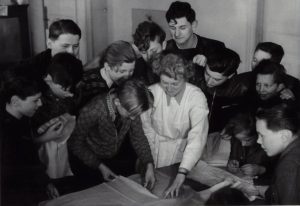Communicating Clearly and Persuasively in Negotiations: Techniques for Winning Over Stakeholders
Effective communication is a cornerstone of successful negotiations. Clear and persuasive communication skills are essential for conveying ideas, avoiding misunderstandings, and influencing outcomes. When negotiators express their points concisely and comprehensibly, all parties can better understand the issues at hand and work towards mutually beneficial solutions.
Persuasive communication techniques can significantly impact the negotiation process. By presenting arguments logically and compellingly, negotiators can sway opinions and guide discussions towards their desired outcomes. This approach involves not only articulating one’s position clearly but also anticipating and addressing potential counterarguments.
Moreover, clear and persuasive communication fosters trust and credibility among negotiating parties. When individuals can effectively explain their stance and support it with relevant evidence, they demonstrate expertise and knowledge in the subject matter. This can enhance their perceived authority and make other parties more receptive to their proposals.
Effective communication also plays a crucial role in overcoming objections and resistance during negotiations. By addressing concerns directly and presenting alternative perspectives persuasively, negotiators can help bridge gaps in understanding and find common ground. This approach can lead to more productive discussions and increase the likelihood of reaching agreeable solutions.
In summary, mastering clear and persuasive communication is vital for anyone engaged in negotiations. It facilitates understanding, builds trust, overcomes obstacles, and ultimately contributes to more successful negotiation outcomes.
Key Takeaways
- Clear and persuasive communication is crucial in negotiations to convey your message effectively and influence the outcome.
- Building rapport and establishing trust with stakeholders is essential for creating a positive and collaborative negotiation environment.
- Crafting compelling messages and arguments helps in presenting your case persuasively and gaining stakeholder buy-in.
- Active listening and responding to stakeholder concerns demonstrates empathy and understanding, leading to better negotiation outcomes.
- Using nonverbal communication, such as body language and facial expressions, can enhance persuasiveness and convey confidence in negotiations.
- Overcoming objections and addressing resistance requires effective communication skills to navigate through challenges and reach mutually beneficial solutions.
- Negotiating win-win solutions through effective communication involves finding common ground and creating value for all parties involved.
Building Rapport and Establishing Trust with Stakeholders
Active Listening and Genuine Interest
One way to build rapport and establish trust is by actively listening to the other party and showing genuine interest in their perspective. By demonstrating that you value their input and are willing to consider their concerns, you can create a positive and collaborative atmosphere for negotiations.
Transparency and Honesty
In addition, it is important to be transparent and honest in your communication with stakeholders. Being upfront about your intentions and providing accurate information can help to build trust and credibility.
Empathy and Mutual Respect
Furthermore, showing empathy and understanding towards the other party’s needs and concerns can help to foster a sense of mutual respect and cooperation. By building rapport and establishing trust with stakeholders, you can create a foundation for productive and successful negotiations.
Crafting Compelling Messages and Arguments

Crafting compelling messages and arguments is essential for effectively communicating your position in negotiations. When presenting your case, it is important to tailor your messages to resonate with the interests and priorities of the other party. By highlighting the benefits and advantages of your proposals, you can make a strong case for why they should be considered.
Additionally, using persuasive language and compelling evidence can help to strengthen your arguments and make them more convincing. Furthermore, it is important to anticipate potential objections and address them proactively in your messages. By acknowledging potential concerns and providing solutions or counterarguments, you can demonstrate that you have carefully considered all aspects of the negotiation.
This can help to build credibility and show that you are prepared to engage in a constructive dialogue. Crafting compelling messages and arguments requires careful planning and consideration of the other party’s perspective, but it can significantly enhance your ability to influence the outcome of negotiations.
Active Listening and Responding to Stakeholder Concerns
Active listening is a critical skill in negotiations, as it allows you to understand the other party’s perspective and concerns. By actively listening to stakeholders, you can gain valuable insights into their priorities and motivations, which can help you tailor your messages and proposals to resonate with their interests. Additionally, active listening demonstrates respect for the other party and can help to build rapport and trust.
In addition to active listening, it is important to respond effectively to stakeholder concerns. When stakeholders raise objections or express reservations, it is important to address them in a constructive and empathetic manner. By acknowledging their concerns and providing thoughtful responses, you can show that you are willing to engage in a collaborative dialogue and find mutually beneficial solutions.
Responding to stakeholder concerns in a respectful and considerate manner can help to build trust and create a positive atmosphere for negotiations.
Using Nonverbal Communication to Enhance Persuasiveness
Nonverbal communication plays a significant role in negotiations, as it can convey important messages and signals that complement verbal communication. Body language, facial expressions, and gestures can all influence how your messages are perceived by stakeholders. For example, maintaining eye contact can convey confidence and sincerity, while nodding can signal agreement or understanding.
Additionally, using open and welcoming body language can help to create a positive and approachable impression. Furthermore, nonverbal communication can be used to emphasize key points and add emphasis to your messages. For example, using hand gestures or varying your tone of voice can help to highlight important information and make your arguments more compelling.
Additionally, mirroring the body language of the other party can help to establish rapport and create a sense of connection. By using nonverbal communication effectively, you can enhance the persuasiveness of your messages and create a more impactful impression in negotiations.
Overcoming Objections and Addressing Resistance

Acknowledge and Address Objections
In negotiations, it is common for stakeholders to raise objections or express resistance to certain proposals or ideas. When faced with objections, it is important to respond in a constructive and proactive manner. Rather than dismissing or ignoring objections, it is important to acknowledge them and address them directly.
Demonstrate Commitment to Mutually Beneficial Solutions
By demonstrating that you have considered the other party’s concerns and have potential solutions or counterarguments, you can show that you are committed to finding mutually beneficial solutions. Additionally, it is important to approach resistance with empathy and understanding. By acknowledging the other party’s perspective and showing that you are willing to work towards a resolution that addresses their concerns, you can create a more collaborative atmosphere for negotiations.
Effective Communication is Key
Furthermore, overcoming objections and addressing resistance requires effective communication skills, as it involves presenting your case in a way that is persuasive and compelling. By carefully crafting your messages and responses, you can increase the likelihood of overcoming objections and reaching successful outcomes in negotiations.
Negotiating Win-Win Solutions through Effective Communication
Ultimately, effective communication is essential for negotiating win-win solutions that satisfy the interests of all parties involved. By using clear and persuasive communication techniques, building rapport and trust with stakeholders, crafting compelling messages and arguments, actively listening and responding to concerns, using nonverbal communication effectively, and addressing objections and resistance, you can create a positive and collaborative atmosphere for negotiations. When all parties feel heard, understood, and respected, they are more likely to be open to finding mutually beneficial solutions.
Effective communication helps to bridge differences, find common ground, and work towards agreements that satisfy everyone’s interests. By approaching negotiations with a focus on effective communication, you can increase the likelihood of achieving win-win solutions that create value for all parties involved.
FAQs
What are some techniques for communicating clearly and persuasively in negotiations?
Some techniques for communicating clearly and persuasively in negotiations include active listening, using clear and concise language, building rapport with stakeholders, and using storytelling to convey your message effectively.
Why is it important to communicate clearly and persuasively in negotiations?
Clear and persuasive communication in negotiations is important because it helps to build trust, convey your message effectively, and ultimately win over stakeholders to your point of view. It can also help to avoid misunderstandings and conflicts.
How can active listening improve communication in negotiations?
Active listening involves fully concentrating, understanding, responding, and remembering what is being said. This can improve communication in negotiations by showing stakeholders that their opinions are valued and helping to build rapport.
What role does storytelling play in persuasive communication in negotiations?
Storytelling can be a powerful tool in negotiations as it helps to make your message more memorable and relatable. It can also evoke emotions and create a connection with stakeholders, making it easier to win them over to your perspective.
How can building rapport with stakeholders improve communication in negotiations?
Building rapport with stakeholders can improve communication in negotiations by creating a sense of trust and understanding. This can make it easier to convey your message persuasively and ultimately win over stakeholders to your point of view.













Post Comment